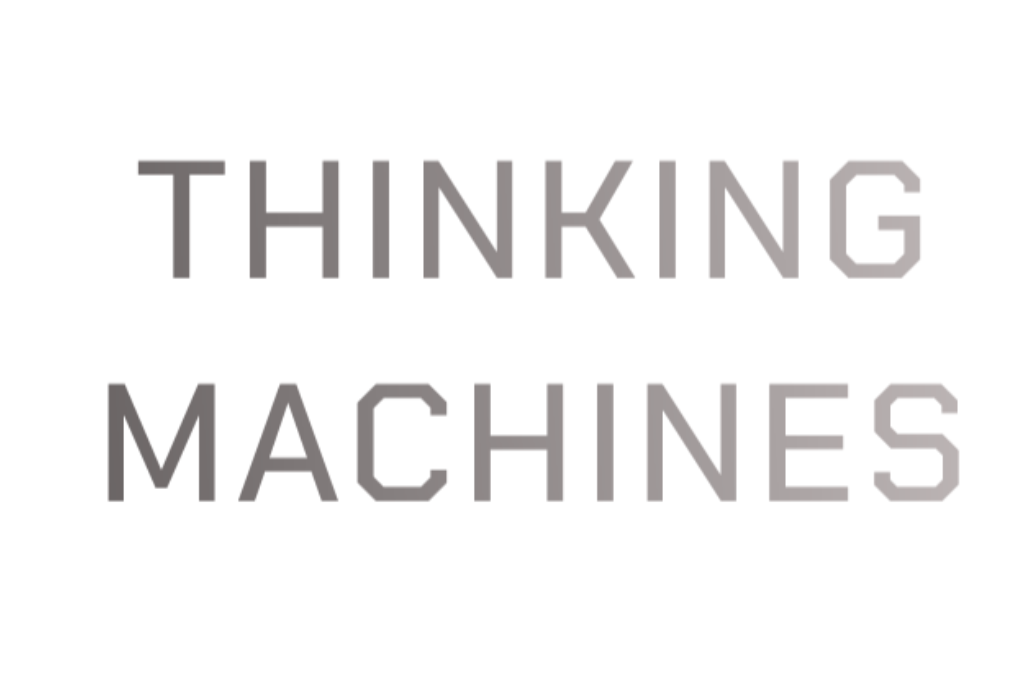AI Research
Is AI Taking Us Back Into Plato’s Cave? – OpEd – Eurasia Review

The allegory of Plato’s Cave from Book VII of “The Republic” is a philosophical metaphor about enlightenment.
Prisoners are chained inside a dark cave, where they face a blank wall and unable to turn their heads. The prisoners can only see the shadows projected onto the wall by objects passing in front of a fire behind them. Thus, these shadows are the only ‘objects’ the prisoners know. It is their truth. This truth becomes the prisoner’s reality.
As such, we are becoming trapped within the web of our own creation, where Artificial Intelligence (AI) is becoming a psychic prison, locking us into views, ideas and the realities of others AI allows us to see. AI now bridges a gap between appearance, reality, and knowledge. AI turns appearance into the truth just like the prisoners inside Plato’s Cave, where the shadows are manifested into the prisoner’s reality inside the cave.
The “truth” is illuminated by a fire behind the prisoners, just as AI illuminates the truth through the light of a screen. AI is becoming communally accepted as fact. Thus, AI traps our modes of thinking, if it is allowed to. It shapes complex realties down into understandable ‘bites of knowledge’ people can conveniently consume.
This is what is occurring in education today. The pandora is now out of the box, where everyone can do well at school, at least in assignments. Going back to Plato’s Cave, if we are freed from the chains and can move around, he can see the shadows that created the prisoner’s reality, are in fact just the shadows of objects passing in front of the fire. The prisoner finds there is a different world with real objects that create different meanings.
AI is not the magic that comes out of a Pandora’s Box. AI is itself based on limited grounded knowledge (especially the mass consumer brands), the same knowledge we have been seeing on the internet for years. Pieces of information as texts, magazine articles, opinions, ideas, and presentation become the information AI uses to present realities to the person that makes the request. So, as information on the internet is limited and often skewed, subject to paywalls (that AI cannot penetrate), Google algorithms, and censorship. The realities AI often present are skewed or carry the bias already there.
This is not necessarily political bias, it might be bias created by the specific AI tool access to selected media, i.e., the sites AI mines for information. Some information, may be hidden in some way or the other. People forget AI is grounded in the information it has access to and seeks access. If you don’t believe the writer, ask AI itself. AI will tell you that.
AI is already playing a major role in education. Students and teachers are using the tool to look up, write, arrange, and research topics. Its easy and it saves time. AI takes away the element of curiosity, as information is given to the reader in a second. The only skill you need is how to ask the right questions.
The ease of using AI destroys our curiosity
Curiosity is a prime precursor to creativity. Without curiosity, there is rarely any creativity. Curiosity is a necessary driver. Curiosity is actually an emotion that sparks inquisitive behavior and an intricate part of both the creative and learning processes. And if creativity is a process, AI will interfere with humans exercising this process. Curiosity is also a driver of passion. The slow subduing of curiosity can have major affects upon a person’s ability to be intrinsically satisfied from the work they do.
When people rely on AI to undertake work tasks, many steps in cognition are skipped. If this is done regularly, neuron paths begin to close off.
IQ is not a constant. When you don’t keep using learned paths, templates and mental-maps in the brain, your cognitive abilities start to decline. This state of loss brings down IQ and other types of intelligence like logical and mathematical intelligence. A sort of dumbing down effect.
This is of great mental cost to humans who rely on the use of AI for long periods of time. Remember the Baby-boomer and Gen X generations could do mathematical calculations in their heads (mental arithmetic). Today’s generations must rely on the external assistance of calculators. AI will have a similar effect on cognition related to mental possessing.
AI is already beginning to become the major source of society’s truth. In its applications, AI is already taking over from journalists, teachers, academics, stockbrokers, data entry clerks, software engineers, copy writers, artists, musicians, doctors, and many other occupations. We are not as yet aware as to how much AI generated material we might read each day.
However, today’s generation of AI cannot easily replicate creativity due to the limited use of grounded information it uses and weakness of algorithms that project information into new thought concepts. The overuse of AI will greatly decrease the level of satisfaction a person generates by completing a challenging task. People are not going to feel that ‘high’ they get when they complete an assignment, presentation, or complete a book. Achieving a sense of satisfaction triggers the release of neurochemicals and hormones like serotonins, oxytocin, gamma-aminobutryic acid, and endorphins that interact to produce good emotional feelings, pleasure and a general wellbeing. In this way, AI will take-away some of the humanity in our work.
As AI takes us closer to this digital construct of the world that reflects a particular reality, society is heading closer to “The Matrix”. For all intents and purposes “The Matrix” is no more than Plato’s Cave in a digital format. What is now very important is teaching people to use AI just as a tool, and not let it become the master of your destiny.
We know what the value is of a graduate who has done all their work through AI generated work. The essence of curiosity, ability to be creative and actual intelligence will have been damaged by AI. With that comes lack of problem-solving ability, or just plain common sense.
Although AI is a massive breakthrough in information organization and management, AI is also ‘dumbing down’ our society. This is an (un)intentional consequence of AI. Just ask AI and it will tell you so.
AI Research
Mira Murati’s Thinking Machines Lab Publishes First Research on Deterministic AI Models

Thinking Machines Lab, the AI research company founded by former OpenAI CTO Mira Murati, has released its first public research under a new blog series titled Connectionism. Backed by $2 billion in seed funding and a team of former OpenAI researchers, the lab is focused on solving fundamental challenges in AI.
The inaugural post, authored by Horace He, explores how randomness in large language model inference arises from GPU kernel orchestration. The research outlines techniques to create deterministic responses, a breakthrough with potential applications in enterprise reliability, scientific research, and reinforcement learning. The publication marks a rare glimpse into one of Silicon Valley’s most closely watched AI startups as it prepares its first product launch.
AI Research
When you call Donatos, you might be talking to AI

If you call Donatos Pizza to place an order, you might be speaking with artificial intelligence.
The Columbus-based pizza chain announced that it has completed a systemwide rollout of voice-ordering technology powered by Revmo AI. The company says the system is now live at all 174 Donatos locations and has already handled more than 301,000 calls since June.
Donatos Reports Higher Order Accuracy, More Efficient Operations
According to Donatos, the AI system has converted 71% of calls into orders, up from 58% before the rollout, and has achieved 99.9% order accuracy. The company also says the switch freed up nearly 5,000 hours of staff time in August alone, allowing employees to focus more on preparing food and serving in-store customers.
“Our focus was simple: deliver a better guest experience on the phone and increase order conversions,” Kevin King, President of Donatos Pizza, said in a statement.
Ben Smith, Donatos’ Director of Operations Development, said the change provided immediate relief on the phones, allowing staff to redirect time to order accuracy and hospitality.
Donatos said it plans to expand the system to handle more types of calls and to make greater use of its centralized answering center. The company did not say whether it plans to reduce call center staffing or rely more heavily on automation in the future.
Other chains report trouble with AI ordering systems
Taco Bell recently started re-evaluating its used of AI to take orders in the drive-thru after viral videos exposed its flaws. In one well-known video, a man crashed the system by ordering 18,000 cups of water. The company is now looking at how AI can help during busy times and when it’s appropriate for a human employee to step in and take the order.
Last year, McDonald’s ended its AI test in 100 restaurants after similar problems surfaced. In one case, AI added bacon to a customer’s ice cream. A McDonald’s executive told the BBC that artificial intelligence will still be part of the chain’s future.
AI Research
Why Ibex Stock Surged 41% to All-Time Highs Today (Hint: It’s Artificial Intelligence)

Key Points
-
Ibex reported record revenue for its fourth quarter and full year of 2025.
-
Ibex is expanding its AI tools and targeting new verticals.
-
The stock hit an all-time high on Sept. 12.
- 10 stocks we like better than Ibex ›
Ibex reported record revenue for its fourth quarter and full year of 2025.
Ibex is expanding its AI tools and targeting new verticals.
The stock hit an all-time high on Sept. 12.
Shares of little-known company Ibex (NASDAQ: IBEX) went parabolic today, shooting 41.1% higher in early-morning trading. The stock was still trading around 33% up at 1:15 p.m. ET Friday.
Ibex is a business process outsourcing company, providing a wide array of services such as customer and technical support, lead generation, surveys, and business intelligence and analytics.
Where to invest $1,000 right now? Our analyst team just revealed what they believe are the 10 best stocks to buy right now. Continue »
Turns out, Ibex’s efforts to build a digital business have already started to pay off, and that is drawing attention to the stock today. The keyword here is artificial intelligence (AI).
Image source: Getty Images.
AI-driven growth
Ibex reported numbers for its 2025 fourth quarter and fiscal year (ended June 30) after the Sept. 11 market close. Ibex’s Q4 revenue jumped 18% year over year to $147 million, driven by strong growth in its top three markets: retail and e-commerce; healthcare; and travel, transportation, and logistics.
The real deal, however, is what Ibex’s full earnings report looked like:
- Record fourth-quarter and full-year revenue
- Highest revenue growth in 11 quarters
- Fastest revenue growth in three years for the full year
- Record free cash flow
These are big milestones, but they’re not really why Ibex stock is going to the moon. It’s these words from CEO Bob Dechant: “Importantly, this quarter marked the shift from proof of concept for our AI solutions to full-scale deployments, setting the table for future growth.”
Ibex is “transforming into a digital-first business” by leveraging AI through its Wave iX platform, which uses generative AI to improve customer experiences. Earlier this month, Ibex said it is targeting the government sector now.
What’s next for Ibex stock?
The company’s capital expenditures more than doubled to $18.4 million in 2025, driven by capacity expansion. Ibex generated record free cash flow of $27.3 million in the year and repurchased nearly 3.9 million shares, almost 23% of its outstanding shares.
Following Ibex’s strong earnings report, analysts at RBC Capital were quick to raise their price target on the stock to $39 per share from $31 a share. Ibex stock already hit an all-time high of $42.99 per share today.
With Ibex projecting 7.5% revenue growth at the midpoint for FY 2026 and capital expenditure of $20 million to $25 million on further expansions, this is one stock you should have on your radar.
Should you invest $1,000 in Ibex right now?
Before you buy stock in Ibex, consider this:
The Motley Fool Stock Advisor analyst team just identified what they believe are the 10 best stocks for investors to buy now… and Ibex wasn’t one of them. The 10 stocks that made the cut could produce monster returns in the coming years.
Consider when Netflix made this list on December 17, 2004… if you invested $1,000 at the time of our recommendation, you’d have $649,037!* Or when Nvidia made this list on April 15, 2005… if you invested $1,000 at the time of our recommendation, you’d have $1,086,028!*
Now, it’s worth noting Stock Advisor’s total average return is 1,056% — a market-crushing outperformance compared to 188% for the S&P 500. Don’t miss out on the latest top 10 list, available when you join Stock Advisor.
*Stock Advisor returns as of September 8, 2025
Neha Chamaria has no position in any of the stocks mentioned. The Motley Fool has no position in any of the stocks mentioned. The Motley Fool has a disclosure policy.
The views and opinions expressed herein are the views and opinions of the author and do not necessarily reflect those of Nasdaq, Inc.
-

 Business2 weeks ago
Business2 weeks agoThe Guardian view on Trump and the Fed: independence is no substitute for accountability | Editorial
-
Tools & Platforms1 month ago
Building Trust in Military AI Starts with Opening the Black Box – War on the Rocks
-

 Ethics & Policy2 months ago
Ethics & Policy2 months agoSDAIA Supports Saudi Arabia’s Leadership in Shaping Global AI Ethics, Policy, and Research – وكالة الأنباء السعودية
-

 Events & Conferences4 months ago
Events & Conferences4 months agoJourney to 1000 models: Scaling Instagram’s recommendation system
-

 Jobs & Careers2 months ago
Jobs & Careers2 months agoMumbai-based Perplexity Alternative Has 60k+ Users Without Funding
-

 Podcasts & Talks2 months ago
Podcasts & Talks2 months agoHappy 4th of July! 🎆 Made with Veo 3 in Gemini
-

 Education2 months ago
Education2 months agoMacron says UK and France have duty to tackle illegal migration ‘with humanity, solidarity and firmness’ – UK politics live | Politics
-

 Education2 months ago
Education2 months agoVEX Robotics launches AI-powered classroom robotics system
-

 Funding & Business2 months ago
Funding & Business2 months agoKayak and Expedia race to build AI travel agents that turn social posts into itineraries
-

 Podcasts & Talks2 months ago
Podcasts & Talks2 months agoOpenAI 🤝 @teamganassi

